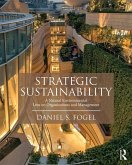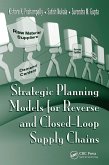Can businesses voluntarily adopt progressive environmental policies? Most environmental regulations are based on the assumption that the pursuit of profit leads firms to pollute the environment, and therefore governments must impose mandatory regulations. However, new instruments such as voluntary programs are increasingly important. Drawing on the economic theory of club goods, this book offers a theoretical account of voluntary environmental programs by identifying the institutional features that influence conditions under which programs can be effective. By linking program efficacy to club design, it focuses attention on collective action challenges faced by green clubs. Several analytic techniques are used to investigate the adoption and efficacy of ISO 14001, the most widely recognized voluntary environmental program in the world. These analyses show that, while the value of ISO 14001's brand reputation varies across policy and economic contexts, on average ISO 14001 members pollute less and comply better with governmental regulations.
Dieser Download kann aus rechtlichen Gründen nur mit Rechnungsadresse in A, B, BG, CY, CZ, D, DK, EW, E, FIN, F, GR, HR, H, IRL, I, LT, L, LR, M, NL, PL, P, R, S, SLO, SK ausgeliefert werden.









